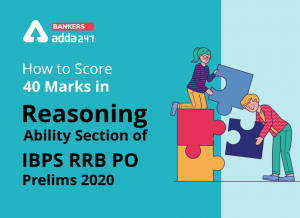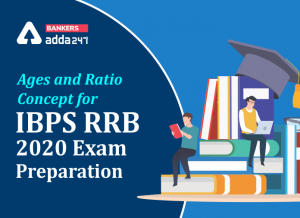Dear Aspirants,
Study Notes are part of an effective strategy that helps you learn about a subject. Your mind collects data of random details in the form of keywords and memory maps visualized during preparation. Jotting down main phrases & keywords, making memory maps and highlighting important facts help one speed up the learning process. Study notes not only help you learn effectively but also play a crucial role during last minute revisions.
Prepositions
Definition:
The word (or words – e.g. – ‘in front of’) that connects nouns or noun equivalents to other words in a particular sentence are known as prepositions.
Noun equivalents include – pronouns, gerunds (V1 + ing), phrases, adverbs etc.
Hence, a preposition is simply a word which indicates the relationships between the noun/pronouns with other words used in a sentence.
Important Rules:
> Prepositions mostly tell us where a particular thing is, or where something has happened in relation to other things. They indicate location, direction, time, space, purpose, contrast etc.
>Mostly the preposition is placed before the noun or the pronoun, but using a preposition at the end of a sentence is not a grammatical error.
For e.g. Mr. Moody is someone with whose opinions I cannot agree. CORRECT
Also, Mr. Moody is someone whose opinions I cannot agree with. CORRECT
> A preposition may also be used at the start of a sentence if the sentence is an interrogative sentence.
e.g. – In which car did the Minister arrive at the Republic day parade?
> Verbs that are used immediately after prepositions are generally in the gerund form.
e.g.
He insisted on staying with his parents.
They left without paying the bill.
> Some more examples of prepositions taking gerunds after them –
You better refrain from hurting my daughter.
She is addicted to gambling.
His team has been hell bent upon participating in the tournament.
Kedar Jadhav seems to have the knack of picking up crucial wickets.
That is no pretext for delaying the process.
He is not capable of running that fast.
> If prepositions are placed immediately after some non-transitive verbs, they become transitive, i.e. then they require a direct object after them.
Examples of such verbs are –
Listen to, laugh at, looked at/upon, depend on/upon, prevail on/upon etc.
Some Common Mistakes:
> Between Vs Among:
Between is used only when the sentence involves just two people/objects.
Whereas, among is used for sentences involving more than two people/objects.
> Beside Vs Besides:
Beside means ‘by the side of something/someone’, while besides means ‘in addition to’
e.g. –
Rahul is standing beside Ramita.
Rahul loves Aishwaraya besides Ramita.
> In Vs Into:
> In Vs Into:
In indicates the motion/rest inside of something. i.e., it is used in sentences referring to a situation where someone is already inside something.
For e.g. – He is enjoying a stroll in the garden.
On the other hand, into indicates the movement towards the inside of something.
For e.g. – The Dog jumped into the pool.
> In Vs Within Vs By Vs On ( in their usage in the context of time):
In EITHER refers to a time period in the future (1), OR it simply means before the end of a time-limit (2).
E.g – (1) ‘I will go to America in the month of January’.
(2) ‘He reached the station just in time (of the departure of the train.’ i.e. before the time of departure.)’
Within means before the end of a particular time-limit. (But no concrete time is indicated)
E.g. –
‘I will return from the USA within a month’
By (in terms of time) means ‘before’.
For e.g. – ‘I will resign by the end of the month.’
On is used to specify the exact time. For e.g. – ‘He reached the station on time (of the departure of the train.)’ i.e. exactly on the time of departure.
> On Vs Upon:
On is used for things at rest whereas upon is used for speaking of things in motion.
e.g –
He sat on the chair.
The dog jumped upon the cat.
> The preposition ‘like’ means ‘similar to’ or ‘similarly to’. It must be followed by the object of the preposition, i.e., noun/pronoun/noun-phrase and never by the subject + verb/helping verb. This is one of the most common mistakes.
For ex –
You look just like your brother. CORRECT
You look just like your brother does. INCORRECT (‘does’ is a helping verb here)
Similarly, – You look like you’re angry. INCORRECT (‘are’ is a helping verb here)
So, in such cases, replace ‘like’ with words/phrases like – the way, as, as if, as though etc.
For ex –
You look just as your brother does. CORRECT
You look just the way your brother does. CORRECT
You look as if you’re angry.
You look as though you’re angry.
To be remembered:
| Preposition | Used with |
| In | Years Decades Months Seasons Period of the day (morning/evening etc) After a certain period of time. E.g. – In 24 hours from now; The game is going to start just in a few seconds (bigger) Location e.g. – I live in Delhi. |
| to | (Apart from other common usages of ‘to’) to tell the time. E.g. – ‘15 minutes to eight’. (7:45) |
| On | Dates week days special days (birthdays/anniversary etc) |
| At | Night Weekend An exact time (smaller) Location e.g. – I live at Mukherjee Nagar in Delhi. |




 Blood Relation Questions for IBPS PO Exa...
Blood Relation Questions for IBPS PO Exa...
 How To score 40 marks In The Reasoning S...
How To score 40 marks In The Reasoning S...
 Ages And Ratio Concept for IBPS RRB Prel...
Ages And Ratio Concept for IBPS RRB Prel...



